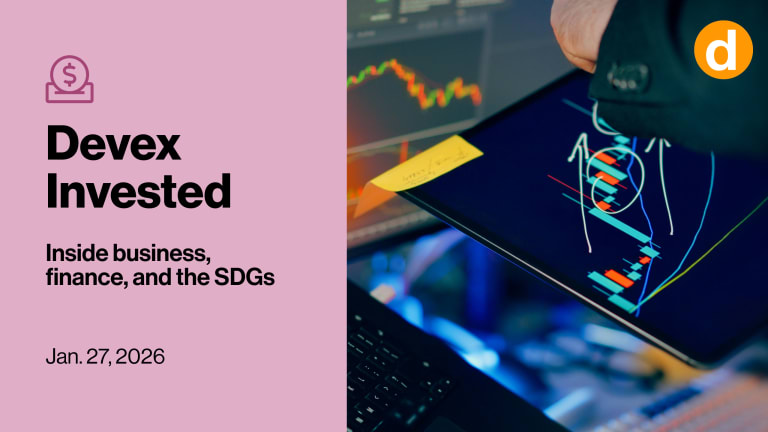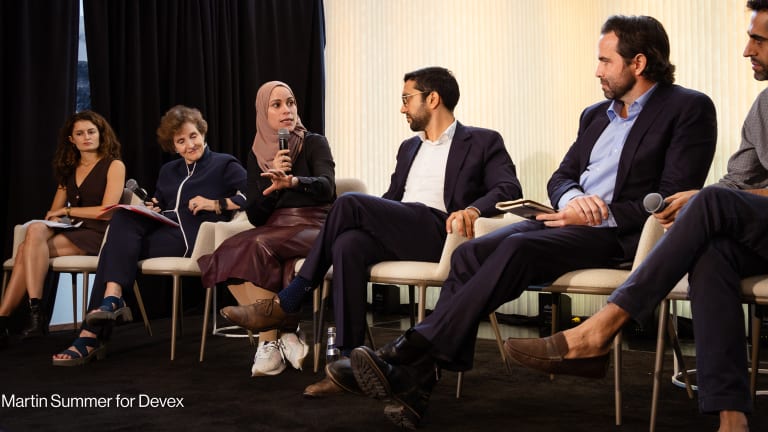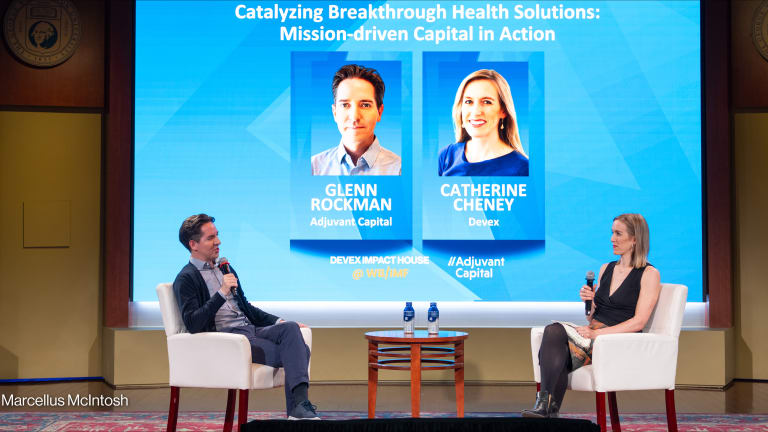
OXFORD, England — Blended finance can play a critical role in bridging philanthropic or public dollars and private capital in trying to tackle the Sustainable Development Goals. But its potential is threatened by a financial system that isn't forward-looking, according to a group of development financiers and practitioners gathered on a panel at Skoll World Forum this week.
“Big financial sector players are becoming a liability for all of us.”
— Achim Steiner, administrator, UNDPPart of the problem can be traced to financial companies themselves and the way today’s financial markets are structured, said United Nations Development Programme Administrator Achim Steiner. With about $300 trillion in wealth in the world today, there is enough finance to address the SDGs, but financial markets must change in order to do so, he said, building on the findings of a U.N. report released earlier this month.
“If the money in wealth today is investing in the opposite direction of public and philanthropic finance, there will be no transition,” he said. “[We need to] get financial markets to invest in the future of our economies rather than those things that come out of the past that generate income today but don’t take us forward.”
One percent of global wealth could finance the SDGs, according to Steiner, but current financial markets are shaped by a conservative, “backward-looking” perspective. Institutions such as the Overseas Private Investment Corp., UNDP, and those in the public space have the responsibility to challenge this narrow financial markets narrative, Steiner said.
If the finance world looks at the SDGs as an opportunity, then public or philanthropic capital can serve as an important trigger, catalyst, or lever, Steiner said, to incentivize the financial system to invest in clean energy or more efficient urban infrastructure.
That may be especially necessary in least developed countries that are least on track to meet the SDGs and have some of the biggest gaps. But if efforts to crowd in more resources come with strict mobilization targets, that could mean that less money goes to LDCs, said Samuel Choritz, policy adviser at the U.N. Capital Development Fund.
Continue reading
► No savior: Can blended finance work for WASH?
Recent research points to a few potential pitfalls. It’s not just about how much capital is being mobilized, but about the quality of that capital, the impact it has, and where it is invested. Other challenges LDCs face is not just the risk in investing there, but also a gap between the perception of risk and the reality of the risk. Narrowing that gap is important, and an increased focus on domestic investors and resources with a better understanding of the market can help, Choritz said.
Another key challenge is structuring blended finance deals. Alix-Ines Lebec, executive vice president of investor relations at WaterEquity, said she had to get creative to build a rather complex blend of investors and types of capital — including different types of equity, a 0% loan, a $5 million first loss guarantee, as well as OPIC funding, she explained.
Kola Masha, managing director of Babban Gona, an agriculture franchise in Nigeria, said philanthropic capital can be useful to de-risk investment in the form of a guarantee to or by funding legal strategies. For Babban Gona, having the support to get the legal structure right from the beginning allowed it to develop a transaction document to raise funds as it can, he said.
Both Lebec and Masha said that a key challenge is the race for competitive market rate returns. Philanthropic capital has sometimes expressed concerns about fairness and making lower returns than other investors, but Masha said that if his funding was structured that way, his organization would not be able to effectively support smallholder farmers without passing on costs.
The panel was asked to grapple with what they consider the end goal of blended finance and how they think it will be used. Steiner said its role is to scale up capacity in countries and communities to invest more to create viable future economies. Public actors, including UNDP, can play a role in helping create policy changes, he said. Some combination of philanthropic or public dollars spent right could incentivize change in financial systems as well, he added.
“Big financial sector players are becoming a liability for all of us,” Steiner said, adding that until the dominant narrative changes the market for SDG financing, it will be suffocated until it is more mature, much like green bonds before it.
Editor's note: The reporter’s travel was supported by the Skoll Foundation. However, Devex retains full editorial independence and responsibility for this content.








